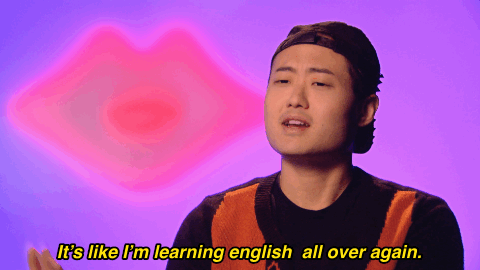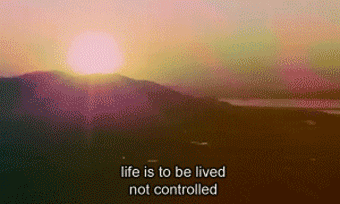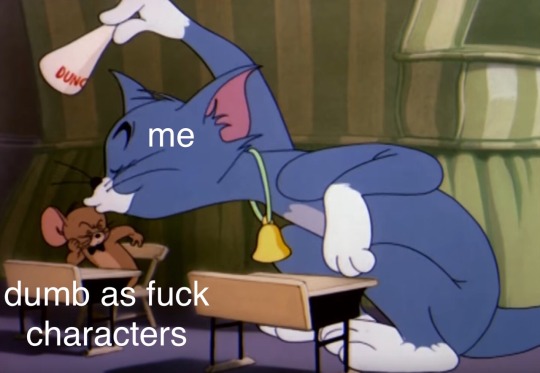Photo

Deepening Social and Political Conflict in your Fiction
In many speculative fiction works, war or civil unrest is common, sometimes it’s a given. And yet so often, these grand, world-shattering wars are shallow when looked at straight-on. If you think about the history of the conflict or the spark that sent the nations to war, you can come up kind of dry. A lot of readers are tired of “WAR” being the default backdrop of a story, especially when it’s used as a prop rather than handled with the care it should be.
So how do you make sure that your social and political conflicts don’t just provide a canvas to your story, but help deepen and strengthen the world and the characters therein? Simple! Just do a little thinking!
General Questions
What are they fighting over/why are they fighting?
Land
Pettiness
Resources
Religion
Safety/Peace-of-mind
Debt
Misconceptions or misunderstanding
Political or social ideologies
Power
Lies
Something stupid
Freedom (revolution)
Who is the root of the conflict between?
Nation & Nation
Government & People
Two factions of people
Parts of the same government
Government & Church/Religious group
Church & People
Government & Private institution
Or does it span numerous groups?
How has it spread?
How long has this conflict been going on?
What was the origin point of this disagreement?
How quickly have things escalated?
How has magic or technology figured into the conflict as it is and as it’s developed?
What has motivated the continuation of this fighting?
What level of devastation have the people dealt with?
What is the military structure of the two sides?
How much do your characters know and understand about the history or reasons surrounding the war? How does that influence their feelings toward it?
Are there outside influences that are escalating the situation by getting involved? Perhaps manipulating or aiding one side?
Long-Time War
What event triggered the initial conflict? The war (if they’re two separate things)?
Do the people remember what started the war, or has too much time passed?
How has the constant presence of war altered the society and culture?
How much fear is present in the day-to-day life of the citizens?
How do parents handle the knowledge that their children will undoubtedly go off to war at X age?
How has the family structure changed with the constant absence of soldiers?
Does lineage play any part in how likely a child is to be recruited or what level they start at?
How hardened have people come to war and death?
When does soldier training start for children? Is there a gender divide on who fights and who doesn’t? How is “fitness” determined for combat?
Has there been any tries at peace between the warring factions? How were they handled? Why did they fail?
Have art, literature, music etc. survived the enduring war? How has the umbrella of unrest affected the arts?
What do the people believe this war is trying to accomplish? Or do they accept it as a part of life that will likely never go away?
Sudden War
How do people cope with the upheaval of their lives?
How are soldiers selected and trained?
How informed are the general citizens?
How in-danger are the non-combatant people?
Are emotions running rampant, or are they in check? Or is ignorance bliss for most people?
How quickly did the inciting incident lead to the full-on war?
How well- or ill-tempered are the leaders of the sides and how does that contribute to the way the delegations, exchanges, and treaties are handled?
Are the people of the general public on board with going to war, or are they angry about their leaders’ involvement?
How well-documented and reported are the goings-on at the front lines/in governmental offices?
Civil Unrest
Why are the people unhappy or unsettled?
What groups are trying to resolve the issues or help the needy during the fragile times?
What are the opposing sides/ideas trying to accomplish and how are they balanced over discontentment rather than heading straight to war?
How much pressure is there to start an uprising?
Has the disagreement between some groups brought unity to others?
Is the unrest more mental and political, or are there mobs rioting in the streets?
Are there rumors (true or not) circulating that are adding to the tension?
Is there a press involved? How are their reportings affecting the people? How are they viewed by the ones in power?
How long has this unrest been present? Do people think that it will eventually lead to a revolution or war…or are they just resigned to the way things are?
Happy writing!
Check out the rest of the Brainstorming Series!
Magic Systems, Part One
Magic Systems, Part Two
New Species
New Worlds
New Cultures
New Civilizations
Politics and Government
Map Making
Belief Systems & Religion
Guilds, Factions & Groups
Science & Technology
History & Lore
6K notes
·
View notes
Text
Excessive Worrying
Things go wrong, things have always gone wrong and new things are going wrong all the time. Excessive worrying is something that is currently going wrong, as you imagine what else might go wrong. That worry affects how you feel and it hurts. Because you don’t want to hurt, you worry about what might hurt you, or what has hurt you, instead of working with the hurt that is happening, now. All that hurt and worry obscures the more basic fact that you are a good, lovable, human being, trying your best to get along in a confusing world.
— Zenmister, from Searching for the Obvious
90 notes
·
View notes
Text
“Hatred, violence and anger can only be neutralised and healed by one substance, and that is compassion. The antidote of hatred, of violence, is compassion - there is no other medicine. Unfortunately compassion is not available in the supermarket. You have to generate the nectar of compassion in your own heart.”
— Thich Nhat Hanh
111 notes
·
View notes
Text
“Health does not always come from medicine. Most of the time it comes from peace of mind, peace in the heart, peace in the soul. It comes from laughter and love.⠀”
— Tinybuddha.com
249 notes
·
View notes
Text
“You can’t think yourself out of a writing block; you have to write yourself out of a thinking block.”
— John Rogers
614 notes
·
View notes
Text
ANGLO MED STUDENTS & DOCTORS. HELP.
Just moved to a city where the primary care language is English (AKA nooottttt the language I studied medicine in)
AND I’m struggling so much with all these damn abbreviations!!!
AND how to write notes efficiently!
PLEASE SEND LIST OF HELPFUL ABBREVIATIONS?!
Like especially for physical exams & plans?!
THANKS YALL.

187 notes
·
View notes
Text
Antagonists That Aren’t People
Some genres shy away from antagonists that take the form of a person or physical being. Adult contemporary especially tends to focus on internal antagonism. Side antagonists can be found in all types of stories, though, and they don’t all have to be a person. It’s good to mix it up and keep it interesting!
Here are examples of metaphorical antagonists:
Self-doubt
Mental illness
Grief
Impulsive/risky behavior
Nature/Weather/Natural disasters
Physical illness
Poverty, Bills, and Debt
Insecurity
Family legacy
Laws, Rules, and Protocol
Monotony
Soul-crushing job
School
Loveless relationship
Aloneness/Isolation
Lack of resources
Night time (or day time)
Feel free to add more!
6K notes
·
View notes
Note
You've probably got a lot of questions rn but I'm gonna try my luck: how to introduce secondary characters? In my specific case: the friend group of the main character
Instead of going on a long tirade for this question, I decided to list a few tips that I’ve found helpful over the years and some things that are key when introducing secondary characters. I’ve also listed some helpful articles I’ve found from other blogs that elaborate more on this concept for your perusal.
Here are my tips:
Instead of introducing them all at once, phase them in using scenes that have a lot of revealing action and/or dialogue. This prevents info-dumping and allows you to focus on the more distinguishing characteristics of minor players so that the reader establishes them in their index for your story.
Only spend time truly integrating characters into the scenes if they impact the main character and move the story along. If it’s an old man they pass by once that is more of a metaphor than anything else, don’t spend a paragraph describing them. This will mislead the reader and mess up the flow of the scene.
Don’t forget to introduce the implications that come with supporting characters as well. If your main character’s mother-in-law lives with them, you’ll need to begin to describe how this impacts the character’s day-to-day life on top of just describing the supporting character’s appearance and general personality traits. Supporting characters make a main character more three-dimensional, but only if you can convince the reader that they’re people too, and not just accessories.
Introduce minor characters in a manner that corresponds with their importance to the story. By this, I mean don’t have a really minor character enter the story in a way that brings a lot of questions into the reader’s mind and then never mention them again, or worse, lead them to believe answers will come in future scenes with the character and then never deliver. If a character will only be in 2-3 scenes, give the reader as much information or room for future knowledge as needed. Don’t create intrigue and leave the audience hanging.
Other articles that I found interesting/helpful on this topic:
How to Introduce Secondary Characters
How to Write Effective Supporting Characters
How to Introduce Supporting Characters: Examples From Good Authors
I hope this was helpful. Happy writing!
--
VISIT THE WORDSNSTUFF WEBSITE AT WORDSNSTUFFBLOG.COM
If you enjoy my blog and wish for it to continue being updated frequently and for me to continue putting my energy toward answering your questions, please consider Buying Me A Coffee or supporting me on Patreon.
Wordsnstuff also has a newsletter, which you can subscribe to by filling out the pop up on wordsnstuff.tumblr.com.
I’d also really appreciate it if you would check out my separate blog dedicated to my current work in progress. I also run writing sprints over on snapchat.
1K notes
·
View notes
Text
“You can always edit a bad page. You can’t edit a blank page.”
— Jodi Picoult
1K notes
·
View notes
Text
“Planning to write is not writing. Outlining, researching, talking to people about what you’re doing, none of that is writing. Writing is writing.”
— E.L. Doctorow
376 notes
·
View notes
Text
Male Character: *fucks up 100 times*
Fans: “No one is perfect. He’s flawed so there is room for development!”
Female Character: *is not the epitome of perfection*
Fans: “Sorry. I just hate this character.”
60K notes
·
View notes
Text
It’s… kinda weird how people write Junkrat’s dialogue in fics sometimes to be over the top ridiculous with his accent but then he forms simplistic sentences with limited vocab. Of course, we went a long time without really getting to hear how Junkrat thinks and talks before the Great Junkers Pile of Content of Late 2017, but I still see people making Junkrat tawk an awfool lot like thiz mate! and its…. very off-putting.
Not trying to control anyone’s art here, everyone has their own interpretations but like….. guys, the content is right there. Junkrat’s speech patterns are right there in the comics, the short, the voicelines, etc. His lexicon is way more flowery, grandiose, intricate and, well… larger than people give him credit for. He talks like an overdramatic theater enthusiast who watched way too much old timey TV… and sometimes wants to do his best impression of an overenthusiastic salesman! Yeah he has his accent and sometimes he says “me” instead of “my” but that doesn’t mean he has the vocab of a 6th grade delinquent. People could be having fun with his character in their fics but they reduce him to a lot of mates and apostrophes. He is a talker, after all.
He refers to the treasure-laden payload that he was going to kill the queen with in The Plan as a “glorious blinged-out boom trolley”. If that isn’t poetry, I dunno what is!
If you are a writer and are having trouble writing Junkrat in any way, or you’re even making him very ooc, just look up what’s already available to you! Headcanons and interpretations are amazing and all but sometimes your audience members can be a little put off reading a character that’s… not quite themselves.
278 notes
·
View notes
Photo

511 notes
·
View notes



